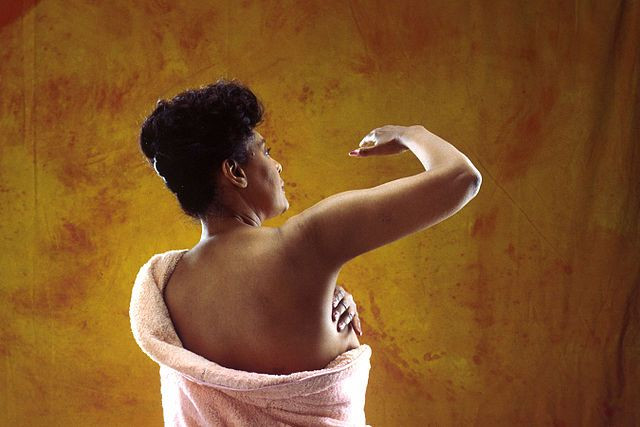Breast Cancer Breakthrough? Teenager Turns Deadly ‘Triple Negative Breast Cancer’ Into More Treatable Condition

A teenage boy in the United Kingdom claims to have found a better treatment for one of the most deadly forms of breast cancer. Krtin Nithiyanandam, a 16-year-old from Surrey, believes he has devised a way to make triple negative breast cancer respond to drugs.
"Most cancers have receptors on their surface which bind to drugs, but triple negative don't have receptors so the drugs don't work," Nithiyanandam told The Telegraph.
He believes inhibiting a certain protein, called ID4 — responsible for stopping stem cells from turning into a more dangerous form, or "differentiating" — can lead to more successful treatments than the traditional treatment, a grueling combination of surgery, radiation, and chemotherapy. In addition, Nithiyanandam has also discovered increasing the activity of Phosphatase and tensin homolog (PTEN) — a tumor suppressor — will allow chemotherapy to work more effectively. The combination of inhibiting the ID4 protein and increasing the activity of PTEN could prove far more effective than traditional drugs, he believes.
“Overall triple negative breast cancer has a worse outlook in the first few years. However, it often responds well to chemotherapy and longer-term survival is similar to other types of breast cancer" said Nithiyanandam.
Typically, hormones like estrogen and progesterone drive many forms of breast cancer by getting attached to the hormone receptors in the cancer cells, and contributing to their growth. These receptors are proteins found in and on breast cells, receiving messages from hormones telling the cells to grow. Drugs like Tamoxifen are used for treatment, as they block these hormones and inhibit the growth of the disease. However, these drugs are ineffective on triple negative breast cancer because these cancer cells don't have any receptors.
Triple negative cancer manifests itself in two forms: one is the differentiated form, which produces healthy cells that are not very aggressive and grow and multiply slowly. The undifferentiated form never becomes recognizable breast tissue; it spreads quickly and leads to a tumor. Women with undifferentiated cancer have a poor prognosis, so doctors try to deviate the cancer to a state where it can be treated.
According to the Susan G. Komen foundation, about 15 to 20 percent of breast cancers are triple negative or basal-like — tumors that have cells with features similar to those of the outer (basal cells) surrounding the mammary ducts. Even though triple negative/basal-like tumors are aggressive, they can be treated successfully with a combination of surgery, radiation therapy, and chemotherapy. Potential future therapies include the epidermal growth factor receptor, aB-crystallin and androgen receptor. Androgen receptor has been identified as a newly emerging biomarker in triple negative breast cancer because it has been shown to play an important role in the genesis and development of breast cancer.
Nithiyanandam believes, “The next stage of research would be studying the effects of increased PTEN expression in more detail but also trying to develop a system which would allow me to successfully introduce PTEN and the ID4 inhibitors in vivo.”



























